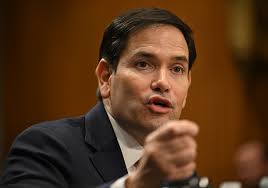The maiden edition of the Mining and Minerals Convention provided the stage for a raft of bold initiatives aimed at transforming Ghana’s gold sector, announced by Sammy Gyamfi, Chief Executive Officer of the Ghana Gold Board (GoldBod).
Speaking before industry stakeholders, policymakers, and development partners, Gyamfi outlined an unprecedented vision to optimize Ghana’s gold production, strengthen value addition, and empower local communities.
$1 billion mining investment on the horizon
One of the most striking announcements was the signing of a Memorandum of Understanding (MoU) with Goldstream Global DMCC on 22nd August 2025, which is expected to evolve into a Commercial Agreement by November 2025.
This partnership is projected to inject up to $1 billion into the establishment of over 300 responsible mines in blocked-out mineralized areas in partnership with concession owners.
“This Mining Support Program (MSP) will not only increase national gold output but also create thousands of jobs for our unemployed youth,” Gyamfi said, highlighting that the Minerals Commission has already released ten blocked-out mineralized areas to the GoldBod, with more expected in the coming weeks.
Geological investigations to de-risk mining
Acknowledging the importance of geological certainty, the GoldBod is partnering with the Ghana Geological Survey Authority and private geological firms to develop a robust geological data repository.
This initiative is intended to move the artisanal and small-scale mining (ASM) sector from the unpredictability of “lottery mining” to certainty, thereby de-risking investments and boosting returns.
Gyamfi further called on local financial institutions to collaborate in crafting innovative funding models for geological investigations, noting that President Mahama’s government is ready to incentivize early strategic investments to unlock long-term benefits.
Financing and equipment for local miners
For decades, Gyamfi noted, equipment financing for small-scale miners has been dominated by foreign entrepreneurs, often with little regard for environmental standards.
To address this, the GoldBod is working to create export credit facilities and mining-focused on-lending structures to enable local banks to finance equipment, thereby closing the financing gap and promoting sustainable mining.
He also proposed reorienting Ghana’s pension fund strategy toward mining, suggesting locally managed and globally viable equity and debt funds to catalyze investment in the sector.
Value addition: From doré to bullion
The CEO underscored that Ghana continues to export doré (raw gold) instead of refined bullion, calling this a “national shame.”
To change this, the GoldBod is partnering with the Bank of Ghana and local refineries such as the Gold Coast Refinery to begin local refining of gold purchased and exported by the GoldBod.
Further, plans are underway to build a state-of-the-art assay laboratory at the Kotoka International Airport cargo village to standardize gold assay methods using the fire assay standard.
On the same site, a wholly state-owned international-standard gold refinery is planned, alongside a proposed “Gold Village” to position Ghana as a continental hub for gold jewelry, coins, tablets, and other value-added products.
Innovation, traceability, and environmental responsibility
Gyamfi stressed that GoldBod is committed to traceability, environmental sustainability, and responsible sourcing, in line with OECD guidelines and international best practices.
A nationwide traceability system is to be implemented before the end of 2025, ensuring that every gram of gold purchased by GoldBod can be traced to its licensed and environmentally compliant mine of origin.
In addition, GoldBod will donate five Toyota Hilux pickups and GHS5 million to the National Anti-Illegal Mining Operations Secretariat (NAIMOS) and has earmarked funds to support the reclamation of 1,000 hectares of devastated forest reserves starting November 2025.
Corporate social responsibility
From October 2025, GoldBod will roll out a corporate social responsibility program aimed at supporting mining communities with potable water, modern education and health facilities, and scholarships for brilliant but needy students.
The GoldBod will also support the cooperative mining scheme launched by the Ministry of Lands and Natural Resources to formalize the ASM sector, create jobs, and increase national gold output.
Driving record-breaking $6 billion gold exports
GoldBod has already begun to deliver results. Small-scale gold exports from January to August 2025 reached 66.7 tonnes valued at $6 billion, surpassing the 63 tonnes exported in all of 2024. This volume even exceeds the output of large-scale mining firms, which recorded 65.1 tonnes valued at $5.6 billion in the same period.
To support gold reserve accumulation, GoldBod has locally purchased 20% of output from seven large-scale mining companies, supplying nearly 100 kilograms (0.1 tonnes) to the Bank of Ghana.
The initiative has strengthened Ghana’s foreign exchange reserves, improved the balance of payments, and provided critical support for the Ghana Cedi.
Licensing, regulation, and anti-smuggling measures
Since its inception, GoldBod has introduced aggressive licensing reforms for responsible sourcing, strengthened regulatory controls and oversight, introduced a transparent pricing system for licensed miners, deployed aggregation systems to mop up gold from all regions, scrapped the 1.5% withholding tax on unprocessed small-scale gold, intensified the fight against illegal gold trading and smuggling, including establishing a task force with rewards for whistleblowers.
These measures have already contributed to record-high gold exports in volume and value, demonstrating the critical role of GoldBod in Ghana’s mining ecosystem.
The GoldBod vision
Gyamfi concluded with a bold vision: “We are proving that African-born corporations can lead globally. Our work is not just about numbers, but about creating a sustainable, responsible, and innovative gold sector that maximizes national benefit and empowers communities.”
The GoldBod, he emphasized, is central to asserting national sovereignty over Ghana’s mineral wealth, shifting from raw extraction to value retention and responsible trade, and ensuring the long-term sustainability of Ghana’s gold sector.
With these initiatives—from multi-billion-dollar mining investments and traceability systems to local refining and value addition—Ghana is set to transform its gold sector, strengthen its economy, and solidify its position as a continental leader in responsible mining.













